
Revenge of the insects!
Genocide was a dark film with a very bleak opinion of humanity. Director Nihonmatsu Kazui threw a lifetime of grievances against the screen to see what would stick-nuclear war, environmental concerns, concentration camps, PTSD, racism (whether intentional or not), sexism (whether intentional or not), murderous insects that could communicate, and the Cold War. That was a lot to tackle in 86 minutes.Joji collects insects on an uninhabited island with Annabelle both for her own study and for his friend, Dr. Nagumo in Tokyo. When Joji and Annabelle are “relaxing” they see a plane catch fire with four parachutes dropping out. Later, two American crew members are found dead and one unconscious. Because Joji tried to sell a watch he found that belonged to a crew member he is arrested for murder. Colonel Gordon wants him to pay for their deaths but he is far more concerned about a missing nuclear bomb. Soviet spies are scouring the islands attempting to find it as well. To complicate matters, killer bees are on the loose bent on destroying humanity. Joji, his wife Yukari, and Dr. Nagumo become hopelessly entangled with a vengeful scientist, predatory insects, and two super powers.
There really was a lot to unpack with this film. Charlie, the black crew member, suffered casual and overt racism from just about everybody. He’d suffered severe PTSD from the war and had become addicted to drugs which caused everyone to treat him even worse. Yukari was sexually assaulted twice and the female doctor once with very little afterthought. The vengeful scientist was a survivor of the notorious Auschwitz concentration camp and had it in for humanity. “I love insects because they never lie.” The American colonel seemed to be a rogue commander willing to start a nuclear war and kill thousands of people to cover up his mistake. The Russians were using the deadly bee research for biological weapons and desperately wanted to get their hands on the bomb. As people showed their ruthlessness and/or utter stupidity on a regular basis, I began to root for the bees.
The actors performed well, something of a rarity for cheap horror flicks. There were several non-Japanese actors who were dubbed in Japanese. I don’t know who wrangled the bee actors but I hope they were paid handsomely. My biggest complaint was in the editing. There were times that people disappeared and ended up somewhere else without explanation. If you have a problem with insects, this film has numerous buggy scenes. I had to turn my head when bodies were infested with creepy crawlies or being chewed on. The science and logic for the film was genuinely lacking. It stretched credulity when a USAF officer believed that detonating a nuclear bomb was a smaller offense than going to the trouble to retrieve it. It's not like someone could have stuffed a multi-ton bomb into a backpack and carried it off the wooded island. Despite gruesome infested wounds, no one would believe the scientists that the insects had turned against humans. Un-bee-lievable.
Genocide was unflinching in its nihilistic view of the world and humans’ place in it right to the bitter end. Nihonmatsu took a stand and didn’t deviate from it. The insects let people know, “The Earth doesn’t belong to humans alone. We don’t care if mankind destroys itself with nuclear weapons, but we refuse to let you take us with you!”
29 October 2024
Trigger warning: Numerous insect scenes in a variety of manner and stages
(Rated on a curve for old, low budget, niche films)
Vond je deze recentie nuttig?

Midnight runners
It's certantly a more unique, less talked about issue what those thugs we're doing, it made me squirmish, but I guess that's goodI wished there was a news broadcast scene at the end though, and we never learn what happened to one girl, or if they called the other 2 girls like they promised, I'm assuming there would be a sequel hopefully
Vond je deze recentie nuttig?
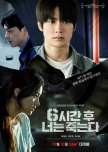
You Will Die After Six Hours
6 mensen vonden deze beoordeling nuttig
Weirdly off tone
A cool premise that is supposed to be thought provoking but messed up so hard it doesn't know where it's heading to. They're trying a mystery blend of mystical and crime thrillers together but don't go along too well mainly due to its poor choice of plot design, and it also abruptly turn into some kind of odd detective drama with weak plot twists making the whole movie weirdly off tone, but at least cinematography is not bad.Vond je deze recentie nuttig?

And Yet, You Are So Sweet
0 mensen vonden deze beoordeling nuttig
refreshing
this show is a cute pick if your looking for something light, youthful, and easygoing! i didnt go in with high expectations, and it delivered exactly what i thought - a shy romance with a sweet vibe. while the plot doesnt offer much beyond the romance, it holds up well if thats all you're after lol.the acting is okay, but the romantic chemistry between the leads felt a bit forced at times. the kissing scenes in particular, missed the mark for me... they felt more awkward than intimate, with the actors barely touching lips or looking fish-like. that said, they still managed to create some warm and enjoyable moments disregarding that.
overall, it’s a cute escape with just enough romance to keep you invested. not doing pros or cons just a nice, simple watch!
Vond je deze recentie nuttig?

The story is dragging
The story is boring and dragging please and please if you see this review don't waste your time and watch this movie. I don't know who wrote this what lead Him to write this story or what he was thinking when writing it , what does the director feel like directing them,when the actors where given the scri p did they read it or even voice out that the story didn't make any little or bit sense like how the hell did they even shoot it will straight fave...didn't they edit the movie how comes they didn't felt like let's delete this human eyes are not supposed to see something not well planned like thisVond je deze recentie nuttig?

BLACKPINK: Light Up the Sky
0 mensen vonden deze beoordeling nuttig
Blackpink: Light up the sky
6/10 is not a bad rating, I just usually rate this type of production this way. I have watched when I could still call myself a blink, now I am more a Jisoo's fan than a group, but I still follow they new releases and wish them less hate and sad to say but better fandom ( but I do think that it is something to wish to every group, so blinks do not get offended). It was nice to watch them and see them more as normal people, they also have a lot of struggles and being in music industry is for sure one of them, eventhougth they are doing what they love.If you are fan of the group or any of the members it is something for you.
Vond je deze recentie nuttig?

Hachi
Bagus banget, menguras air mata. Rekomen banget buat yg suka cerita tentang hewan yg setia. Pertama kali nonton cuma coba-coba film jepang. Dan ternyata menjadi salah satu penonton yg beruntung bisa menonotn film ini. Film terfavorit banget pokoknya dari ceritanya sampai akting para aktris dan aktor juga. Love it!!Vond je deze recentie nuttig?
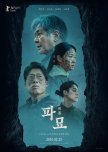
Je dois avouer, j’appréhendais de voir «Exhuma». Je voulais le voir grâce aux acteurs, mais ce qui est horreur n’est pas trop mon genre préféré. Sauf que si octobre est le mois pour quelque chose, c’est bien pour ce genre de film. Heureusement pour moi, ce film ne m’a pas vraiment effrayé, ce qui m’a surprise vu ce que j’en avais entendu dire. Vu que certains éléments se rapportent à l’histoire de la Corée, j’ai été un peu perdue et confuse par moment, mais même sans ceci, si l’histoire est intéressante, elle n’est toutefois pas passionnante. J’aurais préféré une version drama (court), pour apprendre à connaître les personnages un peu plus, et que l’histoire puisse être moins rapide. Là, tout se focalise sur celle-ci, du coup, pour réussir à bien finaliser ledit problème, le reste en a été trop soustrait à mon goût. Une chose à dire cependant… La cinématographie était quelque chose à voir et les acteurs ont joué avec brio !
⁘⁛⁘⁛⁘⁛⁘⁛⁘⁛⁘⁛⁘⁛⁘⁛⁘⁛⁘⁛⁘
*Avis Complet sur mon Blog :*
https://lamagiedeshistoires.wordpress.com/2024/10/29/octobre-2024-en-rafale-dramas-films/
Vond je deze recentie nuttig?
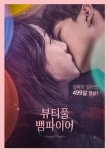
«Beautiful Vampire» fut, pour moi, très décevant. Il faut dire que j’avais entendu parler de ce film sur un site sur lequel il ne donnait comme genre que fantastique et romance, ne disant pas que c’était avant tout une comédie. Du coup, le résultat vu est très loin de ce que j’avais espéré en commençant mon visionnement. D’autant plus que l’histoire reste simple et n’approfondit absolument rien. Ni les personnages, ni les relations entre eux, rien. En plus de tout ça, le film est court, et la durée n’a pas été bien utilisée, laissant la fin trop rapide, pour un résultat bâclé. C’est dommage, parce que le résumé était des plus intéressants, mais tourner le tout à la comédie était désappointant.
⁘⁛⁘⁛⁘⁛⁘⁛⁘⁛⁘⁛⁘⁛⁘⁛⁘⁛⁘⁛⁘
*Avis Complet sur mon Blog :*
https://lamagiedeshistoires.wordpress.com/2024/10/29/octobre-2024-en-rafale-dramas-films/
Vond je deze recentie nuttig?

Train to Busan 2: Peninsula
0 mensen vonden deze beoordeling nuttig
J’avoue avoir eu du mal à accrocher à l’histoire pendant un bon moment. Le fait que le début se passe si vite, sans nous laisser le temps de connaître le ‘héros’ de l’histoire et de nous attacher à lui, n’aide en rien. Mais aidé de certains survivants qui se sont montrés intéressants à suivre, j’ai fini par passer un bon moment. «Peninsula» peut facilement se regarder seul, sans avoir vu la première partie, vu le temps passé entre les personnages différents, et comment il se concentre plutôt sur l’action, en plus d’afficher un côté ‘Fast & Furious’ très présent, qui le différencie énormément du premier qui était, bien sûr, plein d’actions, mais également touchant. Bien que je préfère de loin « Train To Busan », ce film était bien.
⁘⁛⁘⁛⁘⁛⁘⁛⁘⁛⁘⁛⁘⁛⁘⁛⁘⁛⁘⁛⁘
*Avis Complet sur mon Blog :*
https://lamagiedeshistoires.wordpress.com/2024/10/29/octobre-2024-en-rafale-dramas-films/
Vond je deze recentie nuttig?

Didn't make me wax poetically about it
Princess from the Moon told an updated version of the thousand-year-old story, “The Tale of the Bamboo Cutter.” A supernatural “princess”, a sea monster, and UFO should have made for an exciting tale, but connecting to the characters was more difficult than I thought it would be.A mother and father are grieving the loss of their five-year-old daughter when a bright light and explosion near their daughter’s grave draws their attention. The husband runs into the forest, not only concerned about Kaya’s grave but also to put out any fires in the bamboo forest, the source of his income. He finds a small pod that breaks open and reveals a baby, a baby that ages into a five-year-old in seconds. His wife immediately accepts the blue-eyed version of Kaya as a gift from heaven. When Kaya rapidly turns into a young woman, they decide to move away. Their traveling money is aided by the pod which turned out to be pure gold. Soon Kaya’s beauty is the talk of the town and suitors are knocking at the door. What will happen when her people decide it’s time for her to return home?
This story is right up my alley. I love fairytales, fantasy, and kaiju. Not even a guest appearance by Manda could pull me into this one. It didn’t help that the movie was either badly degraded or shot in a gauzy style which distanced me from the story. Instead of giving it an ethereal appearance it was like struggling to see through fog. Kaya came across as detached which didn’t endear me to her. Her love interest was lumped in with two other suitors and an interested emperor. The impossible tasks Kaya assigned them to test their sincerity revealed a lack of integrity in most of the noblemen. “Men trade honesty for an easy life.”
One of my favorite actors, Mifune Toshiro, played the reluctant and then committed father. “Her joy and sorrow are mine now.” Wakao Ayako made the mother’s grief at the loss of a child palpable as well as her joy at heaven providing her another daughter to love. Though beautiful, Sawaguchi Yasuko’s portrayal of Kaya/Princess Kaguya came across as stiff. Despite so much of the story revolving around her, I never emotionally connected with her character. The blind Akeno played by Odaka Megumi gave a more nuanced performance.
Even through the fogged-up lens, the scenery was striking, especially the bamboo forest. The special effects, however, were rudimentary for the most part. The sea dragon did remind me of Manda and with the movie coming from Toho it could have been. The final scenes looked straight out of 1977’s Close Encounters of the Third Kind though I give them props for doing a satisfying job on the space craft. They got their money’s worth as the ship was shown from nearly every angle quite lovingly. Throughout the film the soundtrack was delicate and unobtrusive. Then inexplicably Peter Cetera sang the closing song over the credits. He was everywhere in 1987, also singing the theme song for Karate Kid 2 (1986). Maybe he was in the neighborhood.
Princess from the Moon was a delightful fairytale that missed opportunities to engage this viewer on a deeper level. The second half was stronger than the tepid first half. I did enjoy the concept of a moon maiden growing up with Earthling parents and falling in love with an Earthman. I wouldn’t want to dissuade anyone from watching Princess from the Moon, it’s worth giving a try. For me it faltered on the emotional front for instead of being moved by the tidal tug between celestial homes for Kaya, I found myself reminiscing about Sokka and Zuko’s conversation from The Last Airbender, “My girlfriend turned into the moon.” “That’s rough, buddy.”
28 October 2024
Vond je deze recentie nuttig?
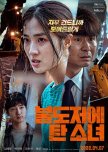
The Girl on the Bulldozer
0 mensen vonden deze beoordeling nuttig
Tragic Story With Amazing Acting
Kim Hye Yoon absolutely brings it in this movie. I'm used too seeing her in lighter roles, so it was really cool to see her take on a role so opposite to her type cast. She nails it, taking the role and playing it perfectly.The story is just so tragic and you really and truly feel for these characters. Watching the film play out, you feel Hye Young's rage and are able to understand her actions.
It's not a perfect film. There are a few plot points that are forgotten about and then come back at the end without reason. It's like the writers forgot that those characters were out there and felt the need to resolve that even though it wasn't really required. The rewatch value is low, mostly because it is so a tragic and depressing movie. It is meant to be, but I don't want to watch it again soon.
But make no mistake, this is a great movie and absolutely worth the watch.
Vond je deze recentie nuttig?
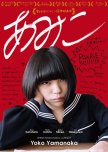
A movie where nothing happens
I want to start off by saying I watched this some years ago and I remember it vividly. I was up at 2 am having searched for an hour trying to find a way to watch it, and I found a way. Ever since then, I think about this movie often.I'm not really sure what the plot was and I don't think there was much character development — but nevertheless I still deeply enjoyed it and woukd rate it 8 stars. This movie also sparked a new love for niche indie films where nothing truly happens.
For whoever is reading this, I would recommend you watch it. Just don't expect anything in particular. It's a good movie to take a break to. I'm not a thought out movie critic so I can't give a well written thorough review on what's good and bad about this movie, but I genuinely liked it for some reason.
Vond je deze recentie nuttig?

Deze recentie kan spoilers bevatten
Ruined by the ending of the movie
I was looking for a sad movie but not one who made me depressed..In the beginning of the movie everything was toooooo slowly at point to get bored..some scene when there is silent wtf
I really felt in love with this couple they were born to be a couple ultra mega chemistry...even im sure she is older than him xD
I have felt so impressed by the plot twist but the final minute made me furious why ending like that I wanted an happy ending I wanted her and him to back to be a couple..escaping was such a coward decision..im sure together they can overcome it..if she really wants she can never give up..and why nothing was explained about the causes of this issue whyyyyyy.
I really fely joy while watching it maybe being in love with someone is not that bad buttt they still deserve a happy ending.The room scene was just wow he really did his best for her to not forget her..she just wanted him to be happy..not not suffer anymore..but i firmly believe that without her..he will suffer more.
I hope they will produce more movie like this one but with ending on point.
Vond je deze recentie nuttig?

movie that made me cry
Such a beautiful movie. Revealing colours of the world through the eyes of a little girl. Telling everyone how important family is, how messy relationships between people can be. And how prejudice of parents can reflect onto their children. How important it is to always have an open heart. I am amazed by this movie, the important message of acceptance, love and understanding was conveyed so wonderfully.I really can't reccomend this movie enough.
Vond je deze recentie nuttig?


